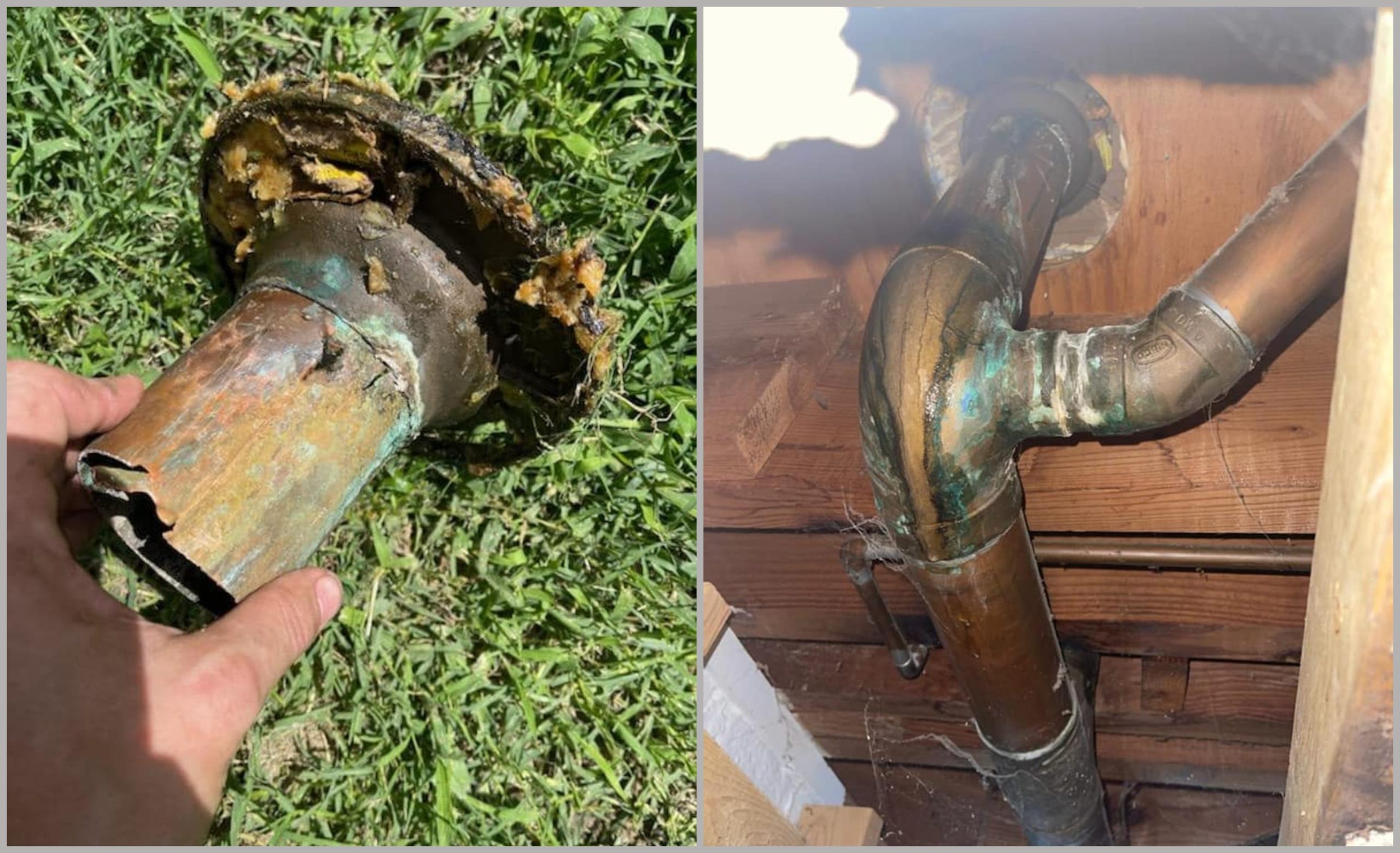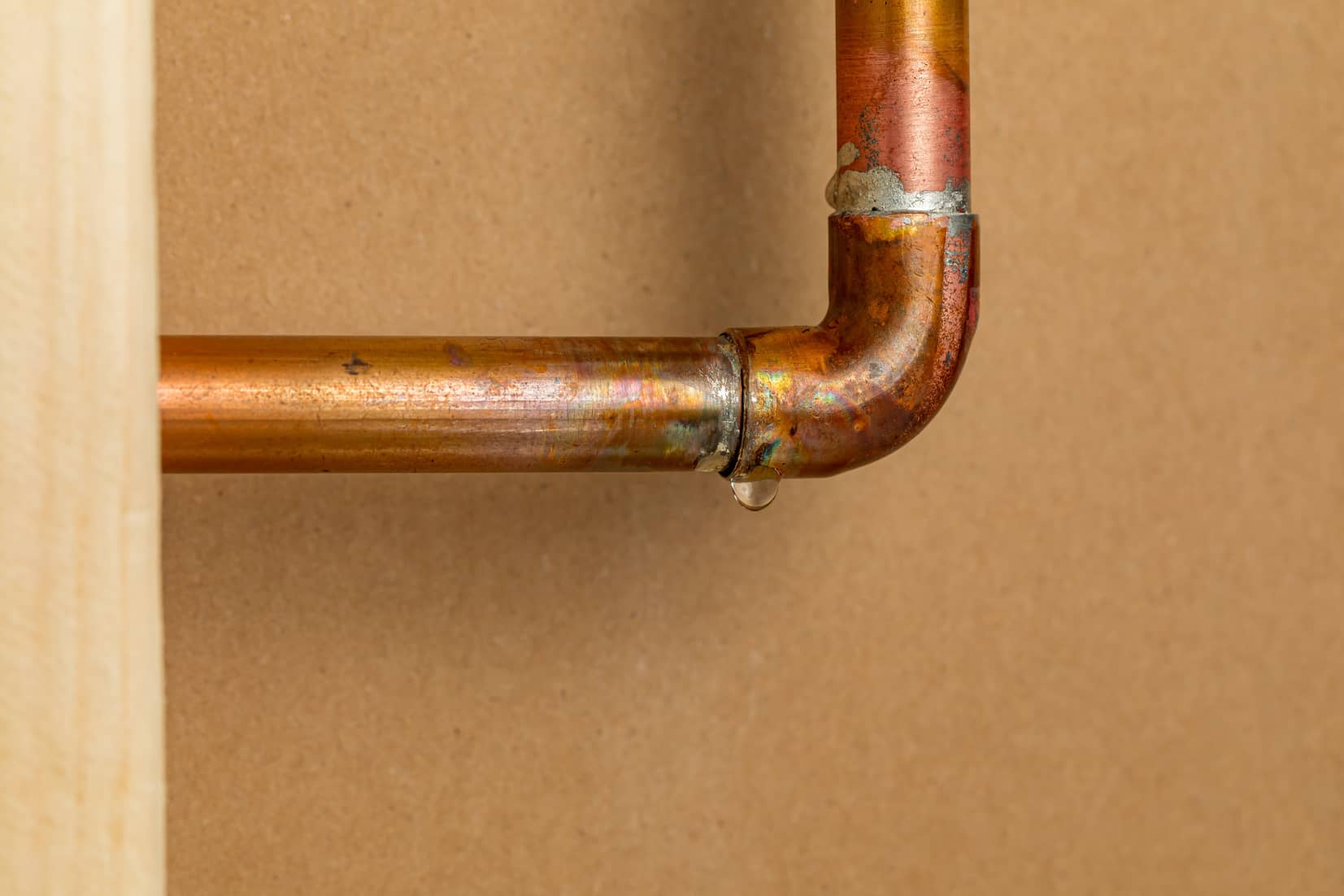Disclosure: This post contains affiliate links and I will be compensated if you make a purchase after clicking through my links. Learn More
When it comes to your home, you want everything to last a long time. Especially your plumbing.
Copper plumbing is known for its durability and reliability. But how long does copper plumbing really last? You might be surprised by the answer. Understanding the lifespan of your copper pipes can save you money and headaches down the road.
Are you curious about how to keep your plumbing in top condition for as long as possible? Don’t miss the rest of this article, where you’ll discover tips to extend the life of your copper plumbing and learn why it remains a popular choice for homeowners like you.
Copper Plumbing Lifespan
Copper plumbing is known for its durability and reliability. It has been a popular choice for many homeowners. Understanding the lifespan of copper plumbing is crucial. It helps in making informed decisions about maintenance and replacements. Copper plumbing can last for decades when properly cared for. Let’s explore the factors influencing its lifespan.
Factors Affecting Copper Plumbing Lifespan
The lifespan of copper plumbing depends on several factors. Water quality plays a significant role. Soft water can extend the life of copper pipes. Hard water may cause corrosion and reduce durability. Regular maintenance also impacts longevity. Routine inspections can prevent major issues.
Average Lifespan Of Copper Plumbing
Copper pipes typically last 50 to 70 years. This range depends on the conditions and maintenance. Well-maintained copper plumbing can even exceed 70 years. Homes with copper plumbing enjoy a long-lasting water system. It’s important to monitor the pipes for signs of wear and tear.
Signs Copper Plumbing Needs Replacement
Several indicators suggest copper plumbing needs replacement. Frequent leaks can signal deteriorating pipes. Discolored water might indicate corrosion. Low water pressure can also be a sign. Regular checks can help identify these issues early. Addressing problems promptly can extend the plumbing’s lifespan.
Extending The Lifespan Of Copper Plumbing
There are ways to extend copper plumbing lifespan. Regular maintenance is key. Inspect pipes for leaks and corrosion routinely. Ensure water quality is optimal. Consider installing a water softener if needed. These steps can help maintain the integrity of copper plumbing.

Credit: todayshomeowner.com
Factors Affecting Longevity
Copper plumbing can last 50 to 70 years under good conditions. Factors like water quality, pipe thickness, and environmental conditions play a role. Regular maintenance and inspection ensure its longevity.
Copper plumbing is popular for its durability. Yet, various factors influence its lifespan. Understanding these can help maintain your plumbing system effectively. Let’s explore some key aspects.
Water Quality Impact
Water quality plays a crucial role in copper plumbing lifespan. Hard water contains minerals that can corrode pipes over time. Acidic water speeds up corrosion, reducing pipe longevity. Regular water quality testing can prevent premature wear.
Installation Quality
Proper installation is vital for lasting copper plumbing. Poor installation can lead to leaks and damage. Ensure joints are secure and pipes are correctly aligned. Hiring skilled professionals ensures optimal setup.
Environmental Conditions
Environmental factors affect copper pipe durability. Extreme temperatures can weaken pipes. High humidity increases corrosion risk. Protect pipes from harsh weather to extend their life.
Usage Patterns
Usage patterns significantly impact plumbing lifespan. Frequent use wears out pipes faster. If water pressure is too high, it can strain the system. Regular maintenance can mitigate these effects. Understanding these factors helps maximize copper plumbing lifespan. Take proactive steps to keep your plumbing system robust.
Signs Of Aging Copper Pipes
Copper pipes can last up to 70 years, but aging shows through pinhole leaks and greenish-blue stains. Corrosion and reduced water pressure are telltale signs of wear, signaling potential replacements. Keep an eye on unusual noises and discoloration for early detection.
Copper plumbing is known for its durability, but like all materials, it doesn’t last forever. Over time, your copper pipes may show signs of aging. Recognizing these signs early can save you from costly repairs or replacements. Let’s dive into the tell-tale signs that your copper plumbing might be nearing the end of its lifespan.
Corrosion Indicators
Corrosion is a common issue with aging copper pipes. You might notice a greenish-blue patina on the pipe’s surface. This is a clear indicator of oxidation, a sign that the copper is reacting with water and air. If left untreated, corrosion can weaken the pipe structure. This could lead to leaks or bursts. It’s essential to address these signs quickly to prevent further damage.
Leaks And Cracks
Small leaks and cracks can be a major sign of aging copper pipes. You might notice water pooling in unexpected areas. Sometimes, these leaks can be hidden behind walls or under floors, making them hard to detect. A sudden spike in your water bill could also signal a hidden leak. Regularly inspect your plumbing for any moisture or damp spots. Early detection can help you avoid extensive water damage.
Discoloration Issues
Discolored water can be an alarming sign of problems with your copper pipes. If your water has a rusty or bluish tint, it might be time to inspect your plumbing. This discoloration usually indicates that the interior of the pipes is corroding. Using discolored water for drinking or cooking can be unhealthy.
Ensure you address this issue to maintain safe and clean water in your home. Have you noticed any of these signs in your copper plumbing? It might be time to call a professional plumber for an inspection.
Maintenance Tips
Copper plumbing is known for its durability. But, to ensure it lasts, maintenance is key. Regular care can prevent costly repairs. Following simple tips can extend its lifespan. Let’s explore some essential maintenance strategies.
Regular Inspections
Check pipes for any signs of leaks. Look for discoloration or stains. These can indicate hidden issues. Inspect joints and connections carefully. Ensure they are secure. Loose fittings can lead to problems. Regular inspections help catch issues early.
Water Pressure Management
High water pressure can stress copper pipes. Use a gauge to measure pressure. Ideal pressure is between 40-60 psi. Install a pressure regulator if needed. This helps maintain safe pressure levels. Adjusting pressure can prevent pipe damage.
Corrosion Prevention
Corrosion is a common threat to copper. Avoid using harsh chemicals. They can accelerate corrosion. Use mild cleaners for maintenance. Ensure proper ventilation around pipes. Moisture can speed up corrosion. Preventing corrosion keeps pipes strong.
Alternatives To Copper Plumbing
Copper plumbing has been a trusted choice for decades due to its durability and reliability. However, if you’re considering alternatives, there are several modern options that might suit your needs better. Maybe you’re renovating an old house or building a new one. Whatever your reason, understanding these alternatives can help you make informed decisions about your plumbing system.
Pvc And Cpvc
PVC (Polyvinyl Chloride) and CPVC (Chlorinated Polyvinyl Chloride) have gained popularity in residential plumbing. These materials are cost-effective and resistant to corrosion.
Unlike copper, PVC and CPVC pipes can be easily installed using a simple solvent cement, making the process quicker and less labor-intensive.
They are also more flexible than copper, allowing for easier installation in tight spaces. However, they are not ideal for hot water applications unless you choose CPVC.
Pex Tubing
PEX (Cross-linked Polyethylene) tubing is another popular alternative. It’s known for its flexibility and resistance to scale and chlorine.
Imagine you’re trying to navigate plumbing through a complex layout; PEX tubing can bend around corners without additional fittings, saving time and money.
It’s excellent for both hot and cold water applications. However, it’s important to note that PEX can be sensitive to UV light, so it should not be used where it will be exposed to sunlight.
Stainless Steel Options
Stainless steel offers a robust and corrosion-resistant option for plumbing. It’s often used in industrial settings but can be a viable option for homes as well.
Think about the sleek look of stainless steel in your kitchen or bathroom. It adds a modern touch while providing strength and durability.
While stainless steel is more expensive upfront, its longevity and aesthetic appeal may outweigh the initial costs. Are you ready to invest in a plumbing system that marries durability with elegance?
Choosing the right plumbing material is crucial for your home’s functionality and longevity. Consider the unique benefits of each material and how they align with your specific needs. Whether you prioritize cost, flexibility, or aesthetics, there’s an alternative to copper plumbing that can work for you.

Credit: mikewilsonplumbing.com
Making The Right Choice
Choosing the right plumbing material for your home is crucial. It’s not just about fixing leaks or ensuring a steady water supply. You are investing in your home’s future, ensuring safety, longevity, and value. Copper plumbing is often considered a reliable choice, but is it the best option for you? Let’s delve deeper into key factors like cost, durability, and environmental impact.
Cost Considerations
Copper plumbing tends to be more expensive upfront compared to alternatives like PVC or PEX. The material itself is pricier, and installation can add to the cost due to the need for skilled labor. However, think about long-term savings. Copper is durable and requires less maintenance over the years. It’s like buying a quality pair of shoes; you spend more initially, but they last longer.
Have you considered your budget for plumbing? If copper fits within your financial plan, it might be worth the initial investment for its longevity benefits. On the flip side, if you are working with a tight budget, explore other options that might suit your immediate needs better.
Durability Comparisons
Durability is a strong suit for copper plumbing. It typically lasts between 50 to 70 years, sometimes even longer. It’s resistant to corrosion and can withstand high water pressure. Contrast this with other materials that might only last a couple of decades.
Imagine the peace of mind knowing your plumbing will serve you well for decades. But if your home experiences acidic water conditions, copper might not be the best choice, as it can corrode faster under such circumstances.
Environmental Impact
Copper is a natural material that can be recycled, making it a more eco-friendly choice compared to plastic options. Plastic pipes can contribute to environmental pollution both during their production and when they are disposed of.
Consider your environmental footprint. Are you committed to sustainable living? Choosing copper might align with your values. Although the mining and processing of copper can have environmental implications, its recyclability offers a balance.
Making the right choice for your home’s plumbing involves weighing these factors carefully. What are your priorities? Is cost your main concern, or do you prioritize sustainability? Ultimately, the decision should align with your needs and values. Copper has its advantages, but it’s not one-size-fits-all. Explore, evaluate, and make the choice that’s right for you.

Credit: allcoasthomeinspections.com
Final Words
Copper plumbing offers durability and long-lasting performance. Typically, it lasts 50 to 70 years. Regular maintenance helps it reach its full lifespan. Factors like water quality and installation impact longevity. Homeowners should inspect pipes for leaks and corrosion. Early detection prevents costly repairs.
Consider professional help for thorough inspection. Upgrading old pipes can save money long-term. Choose copper for reliability and peace of mind. It’s a wise investment for your home. Remember, well-maintained plumbing ensures safety and efficiency. Keep your plumbing in top shape for years to come.


